Second FF4EuroHPC Open Call in numbers
27 October 2021
The FF4EuroHPC second Open Call (of June 22, details to be found here) for experiments received a total of 74 high-quality submissions involving 191 participants from 27 European countries. This represents an increase of 10% in the number of proposals and participating countries compared to the first open call. 64% of the participants are small-and-medium sized enterprises (SMEs), up from 54% previously. A full 65% of the proposals involve European countries which are not participating in the first round of experiments.
European experts in the relevant industrial and scientific fields are evaluating the proposals, and a decision on which ones to fund will be taken before mid January, 2022. A total of EUR 5,000,000 of funding is available, and proposals are rated in terms of industrial impact, quality of the work plan and the consortium, and efficient use of resources.
Country Statistics
Submitted experiment proposals came from a wide spread of European Union Countries, as shown in this tree map (area corresponds to the number of proposals with participation from a given country):
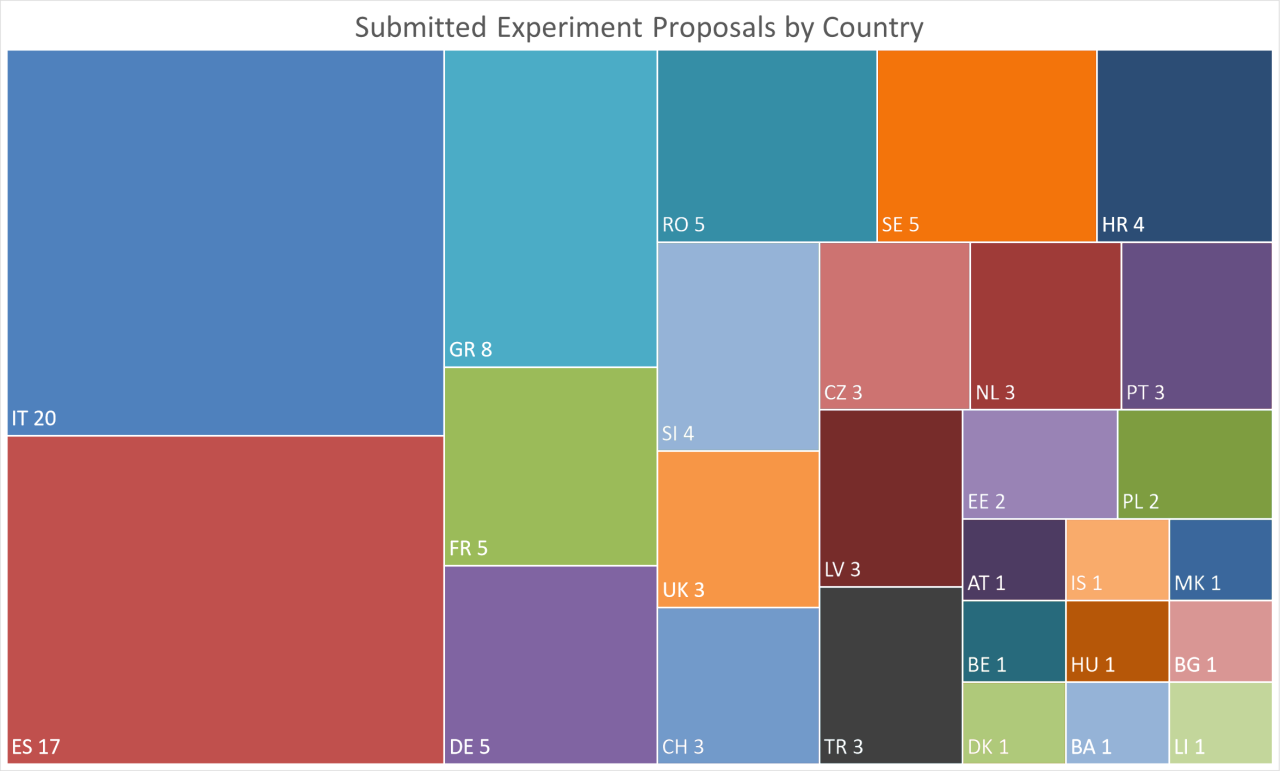
Small and Medium Enterprise Participation
Of the 191 partners participating in the proposals, 122 were SMEs. As shown by the bar chart below, their participation reaches across the range of countries – values printed indicate the number of SME and non-SME participants per country; the bars show the ratio.
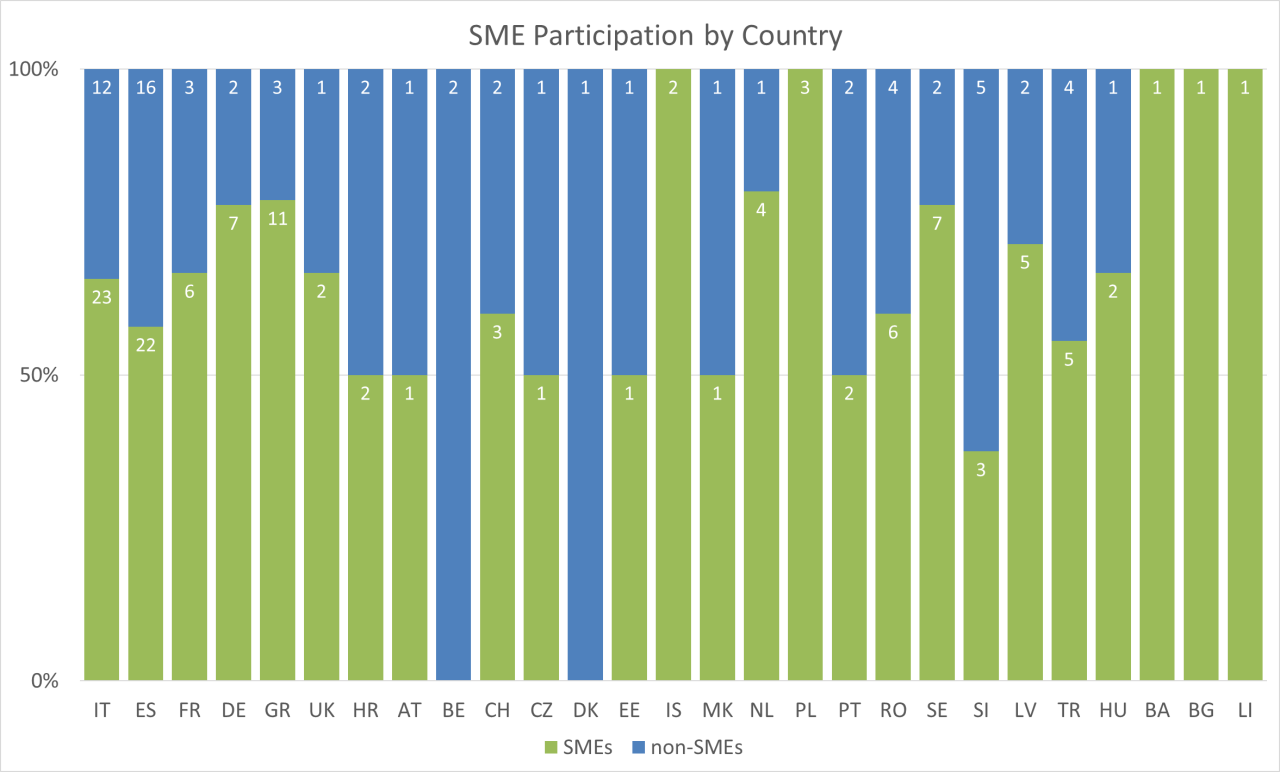
End-User Domains
Each FF4EuroHPC experiment targets a specific commercial or industrial end-user domain, and is designed to accelerate innovation and create business value in that domain. Across the 74 proposed experiments, the end-user domains targeted are illustrated in the circle chart below, using Eurostat’s commonly accepted NACE[1] classification. Please note that 64% of the proposals target the manufacturing domain, which is a FF4EuroHPC focus area.
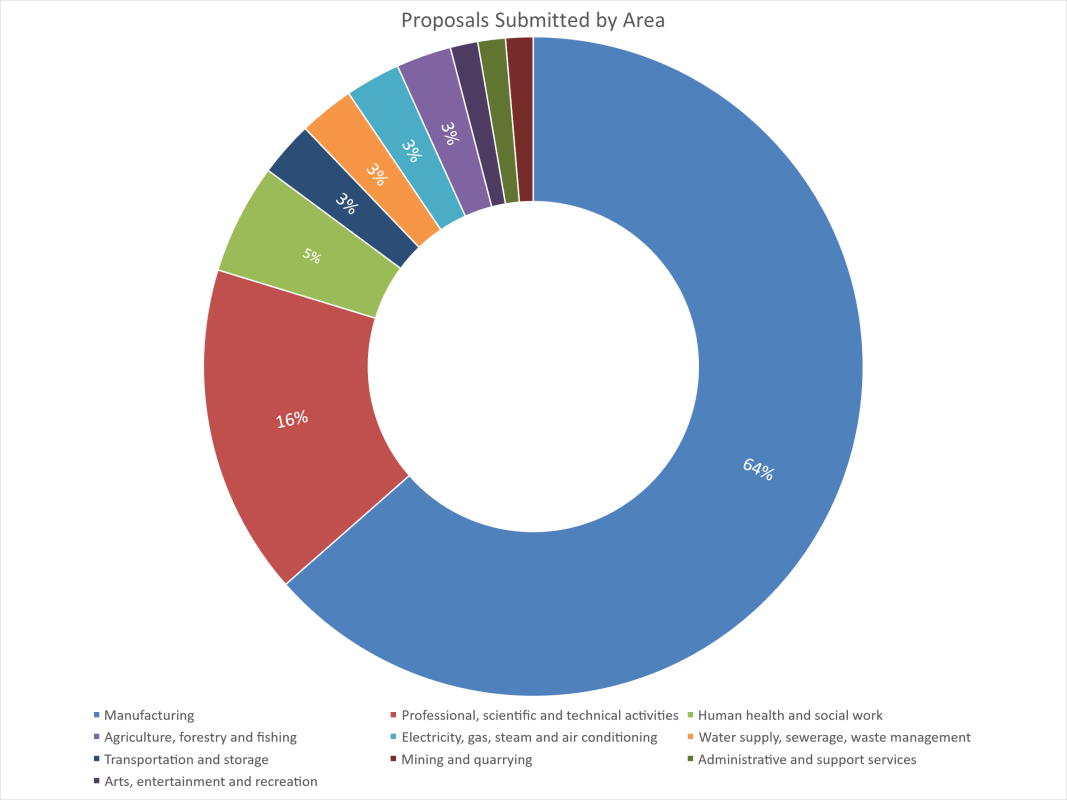
The 47 proposals in the Manufacturing area target a wide variety of fields, as shown below:
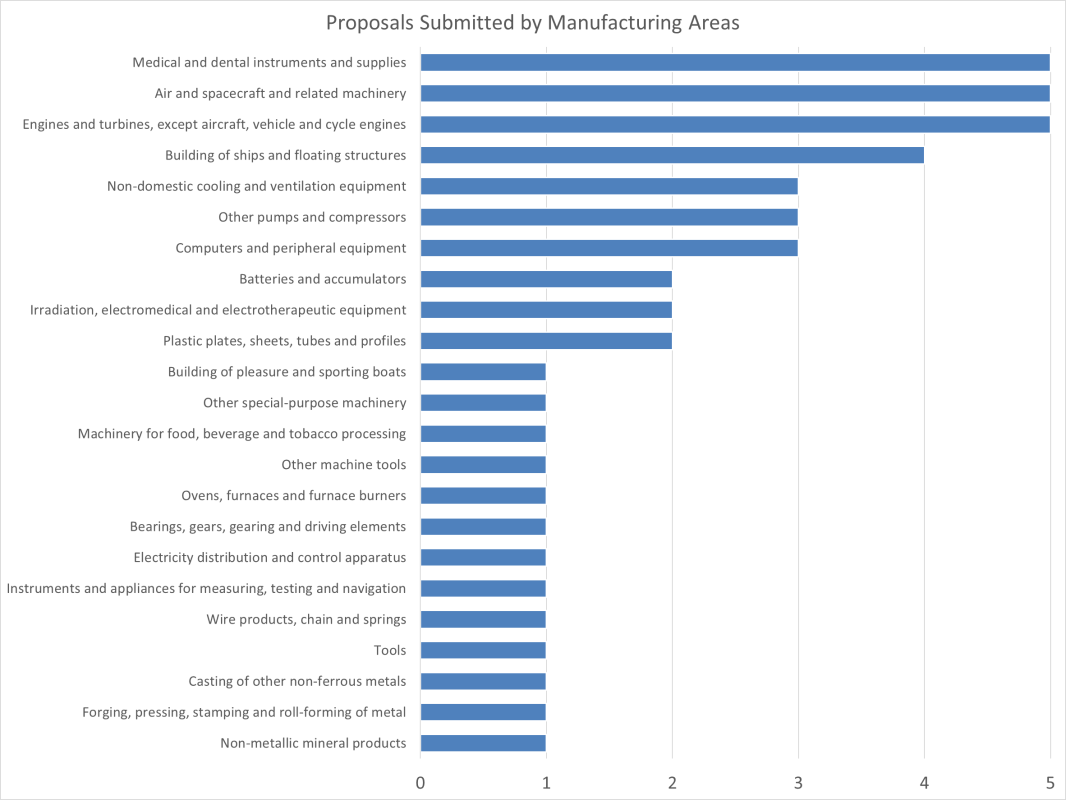
HPC Application Fields
Of the 74 submitted experiments, a total of 32 (43%) propose the use of Artificial Intelligence/Machine Learning techniques. Across all proposals, 25 distinct HPC application disciplines are included, as illustrated in the tree map below. Since a single experiment could include multiple such disciplines, the absolute numbers do not add up to the number of proposals.
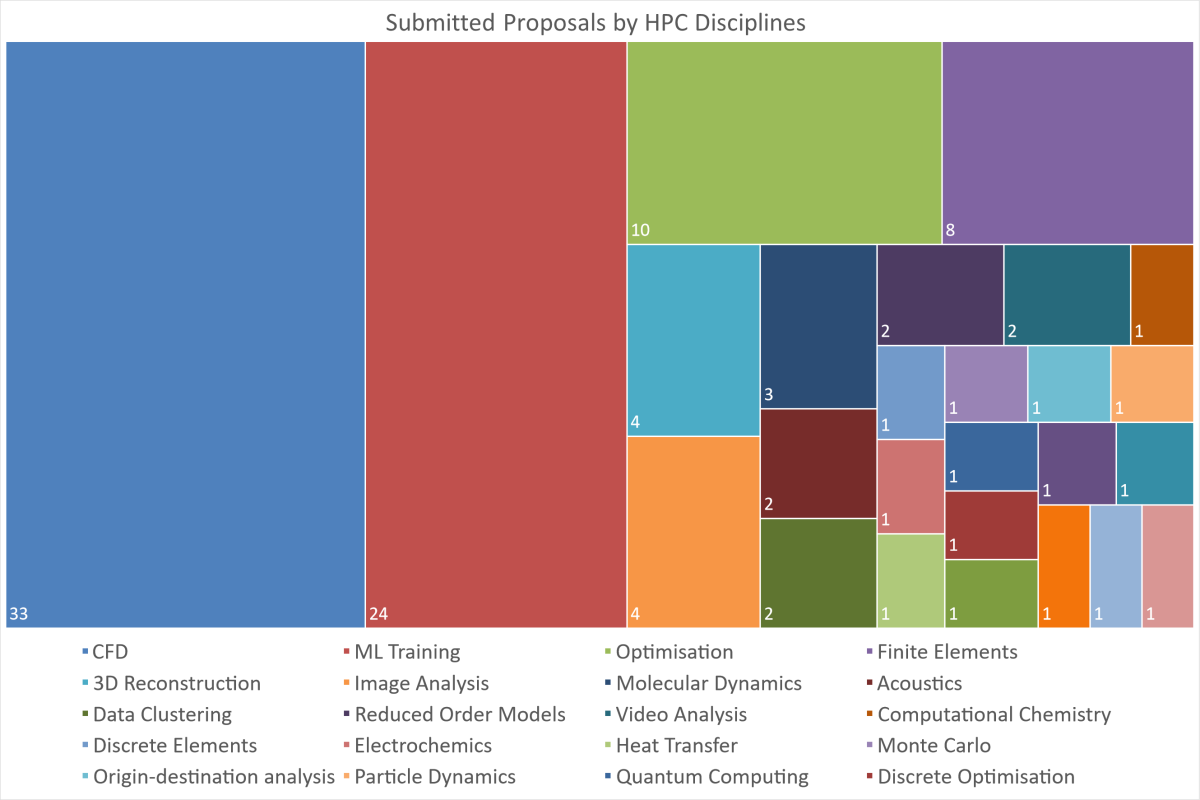
Conclusion
The outcome of the second FF4EuroHPC Open Call for experiments was a great success: the number of proposals and countries participating has increased, and the relative participation of SMEs has also gone up significantly. The focus on the Manufacturing industrial area is fully reflected by the submissions, and the high percentage of countries not participating in the first round of experiments will allow the project to broaden the base of the second round of FF4EuroHPC experiments and bring significant benefits to commercial and industrial companies all across Europe.
About the project
FF4EuroHPC is an R&D project co-funded by the European Commission under the H2020 programme, and supported through EuroHPC JU. The project started in September 2020. The key concept behind FF4EuroHPC is to demonstrate to SMEs how they can strongly benefit from the use of advanced HPC services and thereby take advantage of these state-of-the-art ICT solutions for business benefits. Through two Open Calls, innovative HPC experiments addressing SME business challenges will be selected. The first wave of experiments is running and working to solve a range of business challenges with the help of HPC, HPDA, AI or ML. The 2nd Open Call closed recently and the evaluation of proposals addressing a wide variety of industrial sectors from across Europe is currently ongoing. The 2nd wave of experiments will start early in 2022. Results will be presented through success stories, inspiring SMEs in Europe for further innovation based on HPC.
[1] NACE stands for “Nomenclature générale des Activités économiques dans les Communautés Européennes”.

